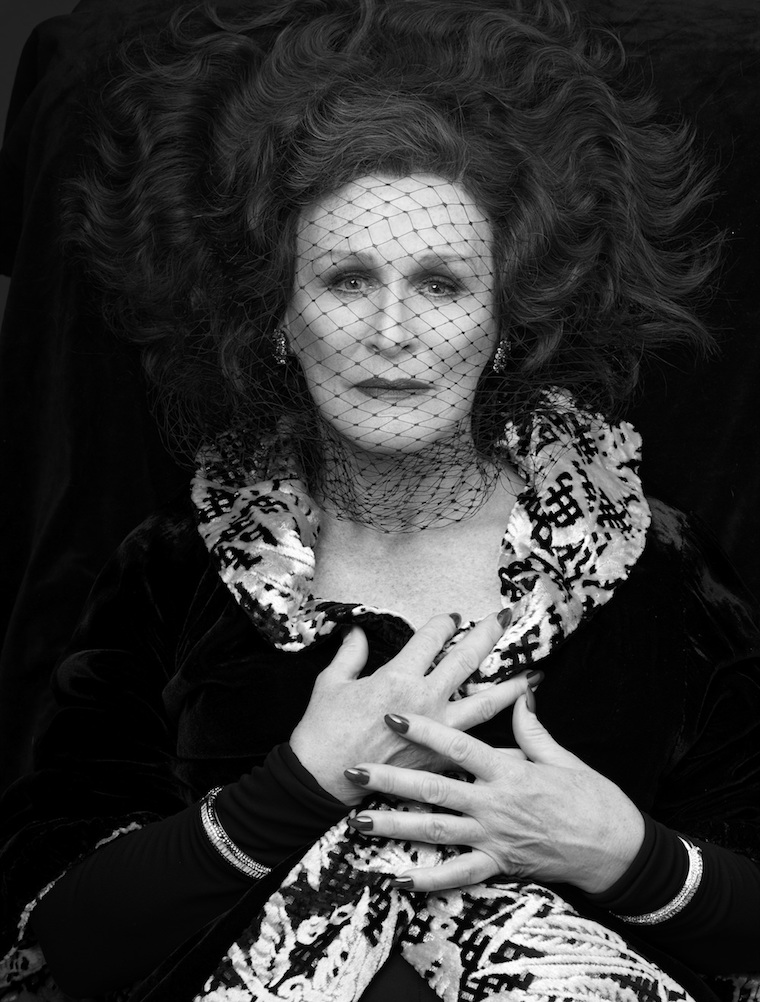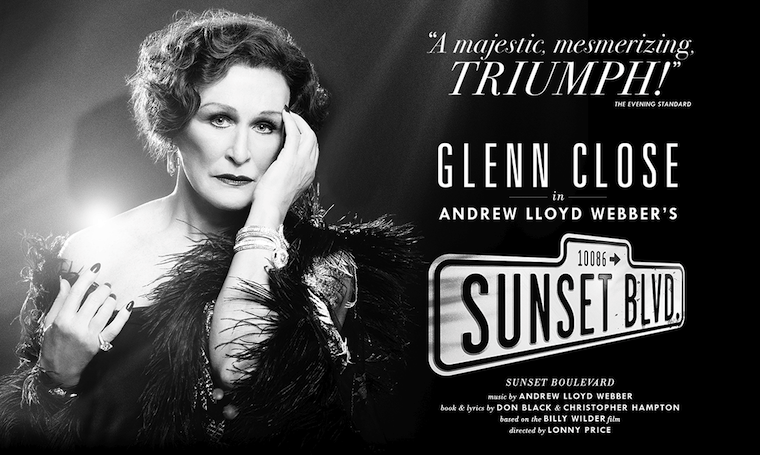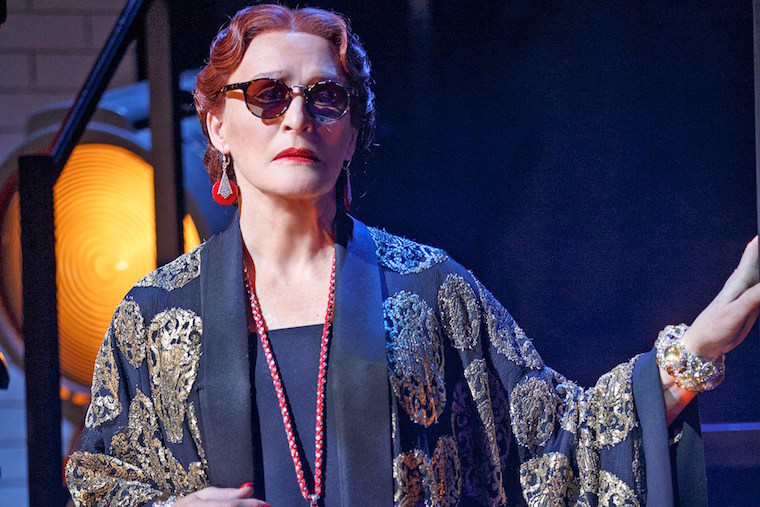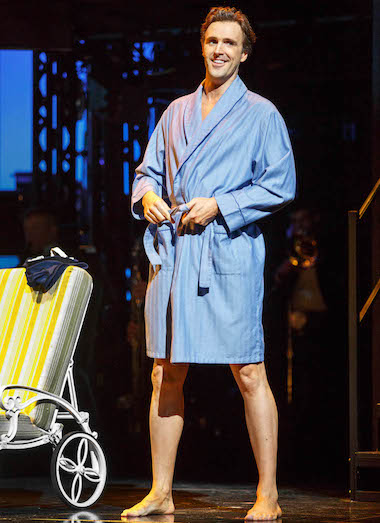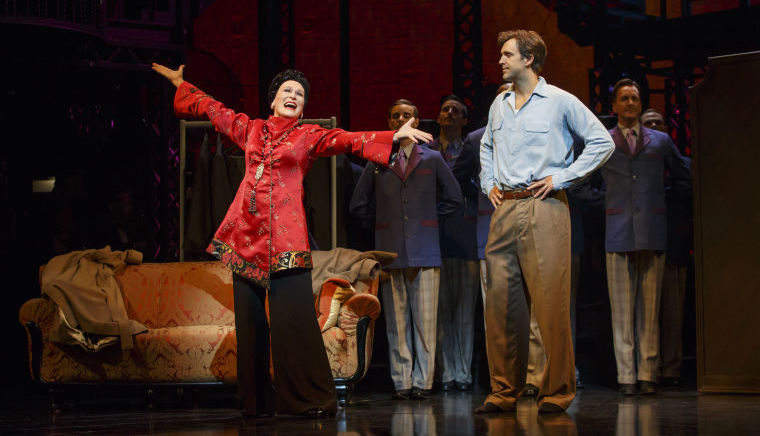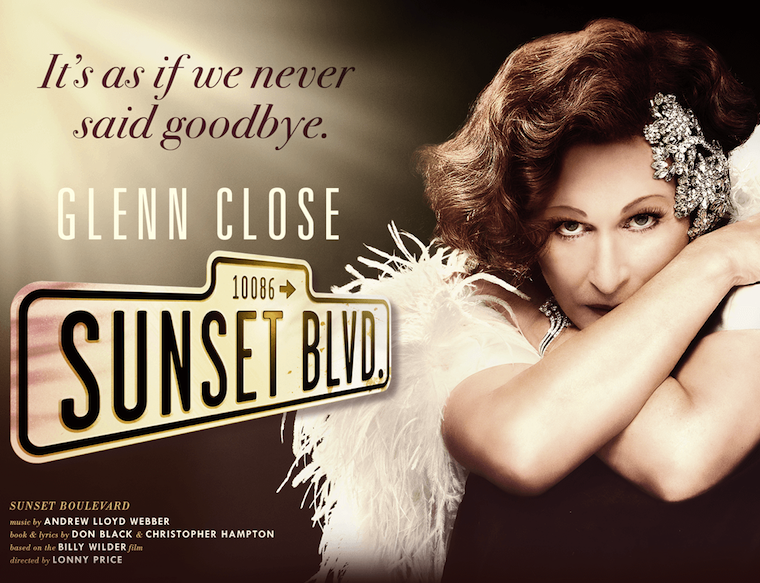Perched near the rafters and almost out of sight, she is the one who holds my gaze and focus. Even with the gaudy cavalcade of memories flashing in front of her, the swirling, restless instrumental of the title song and the cacophony of images that came before, she remains the focus. There, crouched down like a wounded bird, Glenn Close oversees the dramatic penultimate scene of ‘Sunset Boulevard’. It is a genuine testament to the star power of Norma Desmond, and Close herself, that she maintains her transfixing pull even in this most insignificant moment, as Joe Gillis waits for the arrival of Betty Schaefer, and Norma hides in the background. Though she does nothing but cower and watch from above, my eyes are drawn only to her, which is how the entire evening has gone.
A once-in-a-lifetime event is one thing, but a twice-in-a-lifetime event is somehow more special. Encores by their nature don’t customarily create the same kind of bang their original incarnation conjures, but in the case of Glenn Close, her second turn as Norma Desmond is filled with as many fireworks and revelations as the first time she walked so regally down that legendary staircase.
Though the staircase and surroundings are different this time around, the passion and intensity of Close’s performance have sharpened to a razor-sharp theatrical experience. In the minimalist revival, that grand staircase is largely in her mind. Making up for the missing majesty of the original production’s levitating mansion is a 40-piece orchestra, and Close’s own larger-than-life performance. The latter comes with two decades of perfecting her craft and surviving in an industry where women over fifty still largely suffer the same fate as Ms. Desmond herself. (Give or take a bullet or two.) Without the baggage of excessive scenery, the music comes to the forefont, as do the performances of the four leads.
Making the most of Joe Gillis, Michael Xavier is on stage more than anyone else, and it’s his performance that must ground, and ultimately up-end, the show. Gillis has to be both relatable, but somewhat unlikable – an opportunist who may or may not be the moral compass of the evening. Xavier is so audience-friendly that he runs the risk of overplaying the sympathy card, but whereas previous Joes were petulant or petty, his characterization is more moving – the ideal foil for Norma’s own obsessions. He provides the cynical heart around which the show revolves. In a less showy role that requires perhaps more care in retaining the complexity of a man torn between right and wrong, integrity and success, loyalty and passion, Xavier brings the exact balance necessary to set the story on its tragic trajectory. As his love interest Betty Schaeffer, Siobhan Dillon is the lone bright spot of innocence and idealism on a darkened stage of damaged dreams. The emotional sordidness of Norma’s storied life is given gravitas and unconditional support by Max, her loyal manservant, here brought to bullishly protective life by Fred Johanson. It is Max who must deliver the chilling last revelations of the evening, both of his past with her, and her non-existent fans of the present.
That 40-piece orchestra, on center stage for the entire evening, gives a depth and richness to what may be Andrew Lloyd Webber’s most challenging score – a jazz-inflected slice of noir, with a couple of soaring arias fit for an opera. The orchestra beefs things up most noticeably in Desmond’s legendary ride to Paramount Studios, where a musical reprise of ‘The Perfect Year’ is given pomp and processional status.
Being scaled back to the bare bones somehow invigorates this production with new life and urgency. The four main characters are front and center, and their storyline comes into brittle crystalline focus. The relatively static and claustrophobic confines of the Desmond mansion are conveyed in abstract form, with a simple jumble of chandeliers and clever lighting. A car chase is conjured through ingenious use of the staircases and allows the orchestra to deftly move through a tricky 5/4 time signature.
While the show will never be one of the great classic musicals, Close’s performance is astounding, and remains the big draw for this theatrical experience. I sat mesmerized by the wonder of her returning to the role for which she won the Tony Award twenty years ago, and imbuing it with even more layers of richness and relevance. Her Norma is haunting in a different way this time around. It is a softer, more nuanced portrayal, yet she maintains a ferociousness that makes plausible her character’s once iconic star status, and her domination, but simultaneous vulnerability.
Her voice may not be the bold clarion of a typical Broadway belter, but Close makes the most of it, turning her arias into monologues, where the technical prowess of a perfect voice would be at odds with the tattered desperation she must convey. To revive a show two decades after it closed on Broadway, with the same leading lady at the helm, is the stuff of miracles. With Glenn Close imperiously commanding Norma Desmond’s staircase of the past, it’s the stuff of legend.
Back to Blog
